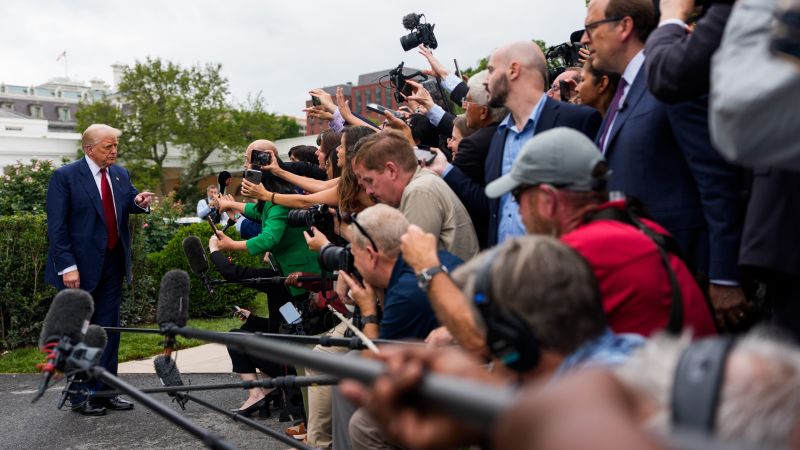In the early stages of President Donald Trump’s second term, discussions emerged regarding whether his 2024 voters were having second thoughts about their decision. Although extensive debates ensued, the general consensus—including mine—indicated that this sentiment was somewhat exaggerated. While there were anecdotes suggesting discontent, it did not appear to constitute a significant or measurable trend. Recent months, however, may indicate a shifting dynamic, showing that the mood among Trump supporters could be evolving, albeit gradually.
To frame the discussion accurately, it would be an oversimplification to assert that a large contingent of Trump supporters are overtly regretting their vote. Rather than expressing outright anger or deep remorse, many Trump voters seem to embody a sense of disappointment. This nuanced sentiment was captured in a recent poll conducted by the University of Massachusetts Amherst, which paints a clearer picture of their current stance. The poll revealed that only 69% of Trump voters expressed being “very confident” in their choice, a drop from the 74% who maintained similar convictions in a prior poll conducted during April.
When compared to the 78% of voters who supported Vice President Kamala Harris and felt assured about their decision, it raises questions about the solidity of Trump’s voter base. While 69% still represents a substantial majority, the fact that a sizeable minority, almost a third, have voiced concerns or uncertainties highlights shifting attitudes. Specifically, 19% of Trump voters mention they remain “confident” but carry “some concerns” regarding their choice, indicating a sense of cautiousness rather than outright regret.
Interestingly, approximately 10% of Trump voters expressed some degree of regret, asserting they either had mixed feelings, wished they had voted differently, or had regrets about their decision. This segment of voters has seen a gradual increase since April, adding to the complexity of the voter sentiment landscape. Overall, about 14% of Trump voters indicated that they would choose differently if given the chance, with 6% suggesting they would prefer Harris, 5% leaning towards a third-party candidate, and 3% opting not to vote. This shift is particularly notable when compared to the 8% of Harris voters who indicated they would also reconsider their vote.
While this poll provides valuable insights, it’s crucial to contextualize these numbers within the broader political climate. Trump’s popularity has continued to decline significantly, as evidenced by polling data indicating that he has recorded the lowest approval ratings in both his first and second terms compared to recent presidents, according to Gallup. The results also reflect a growing dissatisfaction among some of his most ardent supporters regarding contentious policies. Notably, Trump’s military actions in Iran have stirred unrest among individuals who once staunchly supported him, while his support for arming Ukraine further illustrates the discontent within the Republican base, particularly on issues that don’t align with traditional conservative views.
An issue that has potentially alienated a segment of Trump’s supporters is the handling of the Epstein files. A striking 33% of Trump voters believe there is a cover-up occurring within the administration, reaffirming that major controversies have rattled the confidence of the electorate. Consequently, there are growing indications that loyalty among Trump supporters may be precarious, with several influential figures beginning to distance themselves from the former president.
As these shifts in sentiment suggest, various issues have dissatisfied Trump’s supporters. For young adults, approval rates have fallen sharply, dropping from 55% to just 28% over several months, further emphasizing the need for Trump and his administration to reassess their strategies. Additionally, surveys indicate a notable segment of Republicans perceiving a divergence between Trump’s actions and his campaign promises.
In light of these developments, recent polls exhibited that 17% of Trump supporters were aware of other voters expressing regret about their decisions. This hints at hidden trends that may not be disclosed openly, as people may hesitate to admit making mistakes. It’s notable that this indirect acknowledgment might denote personal doubts, indicating a deeper undercurrent of disapproval among his voter base.
Ultimately, the evolving sentiment reflects a growing wave of disillusionment among Trump supporters. As the political landscape continues to shift, it is imperative to closely monitor these patterns. The polling data illustrates that many voters could be grappling with more nuanced feelings about their choices, hinting at a potentially turbulent road ahead as the 2024 elections draw closer.











